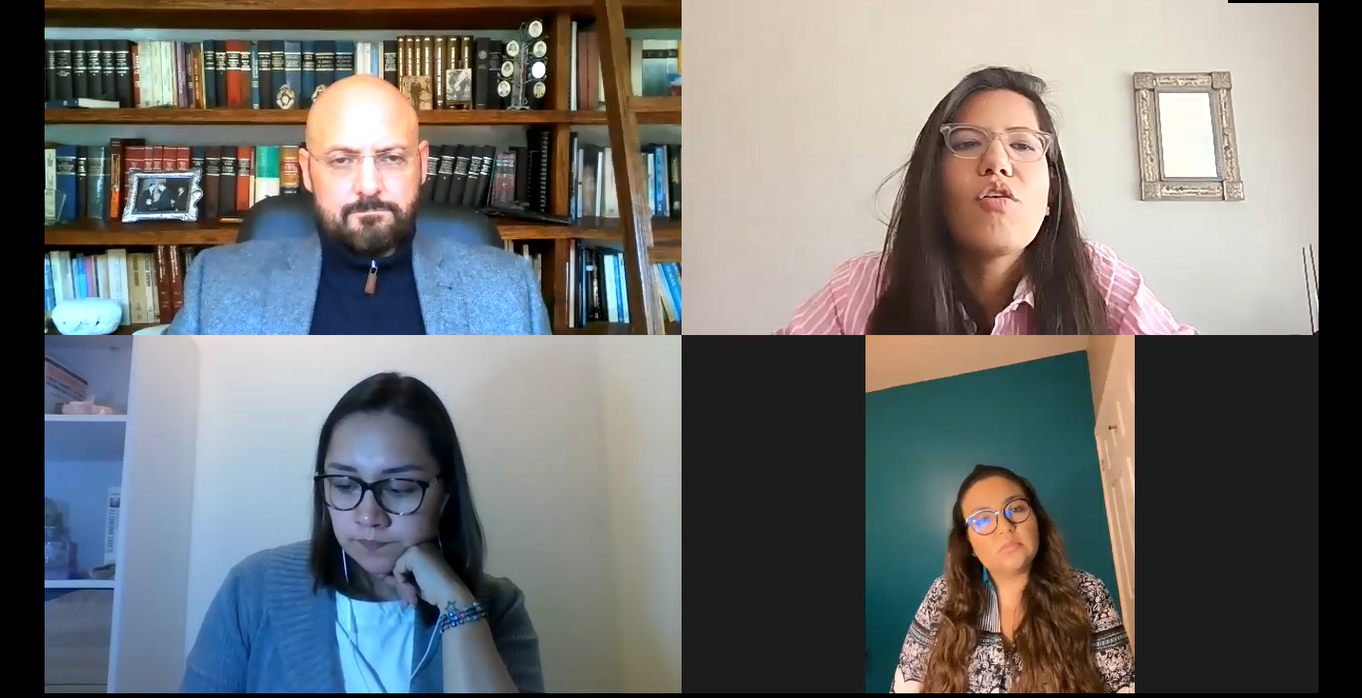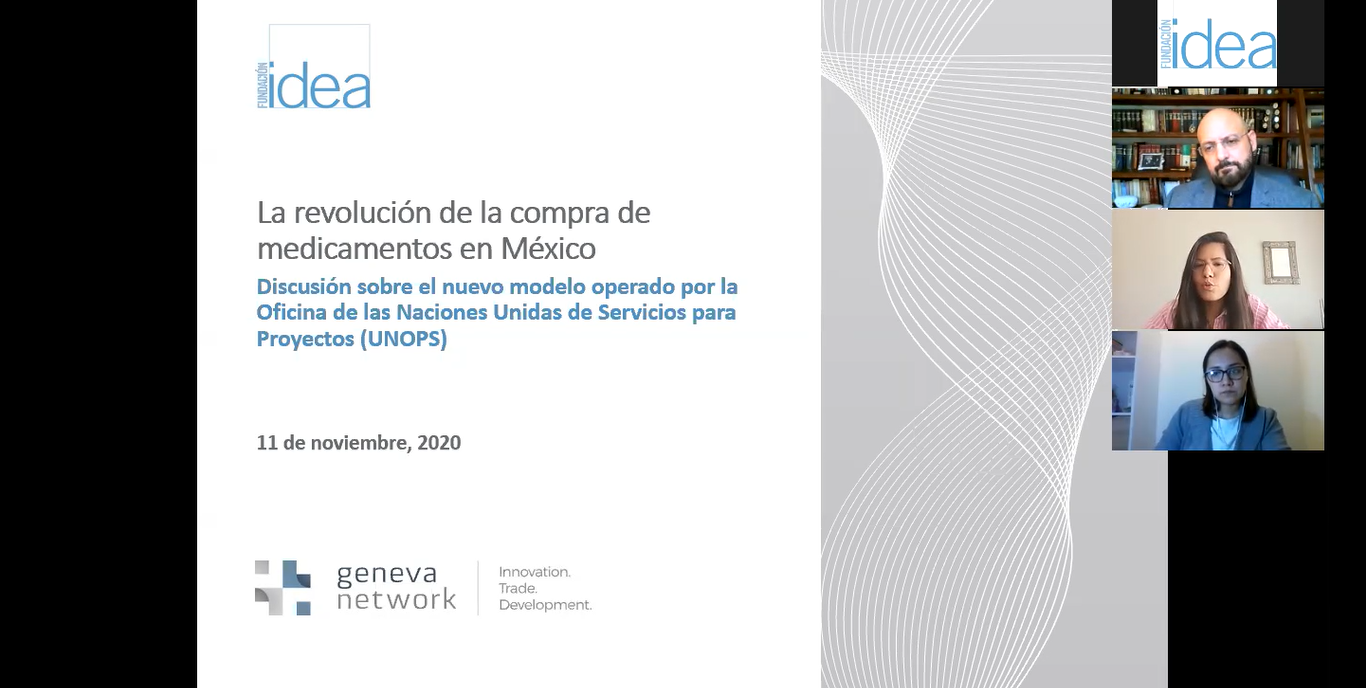A revolution in medicines procurement in Mexico: a discussion about the new UNOPS model
Panelists
Luis Guillermo Ibarra
Expert in drug regulation and former General Director of Biological and Reactive Laboratories of Mexico (BIRMEX)
Judith Méndez
Researcher at the Center for Economic and Budgetary Research (CIEP)
Karina Flores
Expert in competition law and an official of the Federal Commission on Economic Competition (COFECE)
Summary
In November 2020, Geneva Network and Fundación IDEA organised the webinar “The revolution of the purchase of medicines in Mexico: Discussion on the new UNOPS Model”, featuring Luis Guillermo Ibarra, expert in drug regulation and former General Director of Biological and Reactive Laboratories of Mexico (BIRMEX); Judith Méndez, researcher at the Center for Economic and Budgetary Research (CIEP); and Karina Flores, an expert in competition law and an official of the Federal Commission on Economic Competition (COFECE). The session was moderated by Carolina Agurto, partner at Fundación IDEA. The session had 78 attendees from the private sector, government and civil society.
During his intervention, Guillermo spoke about the general panorama around the recent changes in the rules of the public purchase of medicines that the government of Mexico has implemented to reduce corruption and lower the price of medicines. He shared some of the impacts of these changes, such as the 11% decrease in the supply of medicines at the national level between 2019 and 2020.
Guillermo also pointed out UNOPS relative lack of experience in medicines procurement, despite having the contract to manage procurement for a major market such as Mexico. UNOPS has only two previous projects in the public purchase of medicines, in Guatemala and Honduras. These purchases had a value of $ 5,000 million Mexican pesos, far smaller than the sums projected for Mexico, which will be around $ 100,000 million pesos.
In addition, Guillermo said that in those other cases UNOPS was unable to award all of the drug codes that were tendered, since around 35% were left unfulfilled. Finally, he said that it will be important to make it very clear how the purchase is going to be contracted, how the contracts are going to be managed, and how the payments are going to be made, in addition to what the procedures for health certifications should be, and that these should be the same for domestic and foreign pharmaceutical companies.
Judith Méndez focused on the budget issue and spoke to the fact that Mexico’s health spending is below international recommendations (only 2.7% of GDP), and that for 2021 this spending will remain low. Judith said that reduced health spending has implications on factors such as hospital care rates (which in several cases are below 50%) and household spending. She also noted several concerning issues with the UNOPS model. One of them is that the institution designated to direct the process (INSABI) was recently created and does not yet have operating rules. Another key issue is that the financing of the health system is not linked to demographic and epidemiological conditions. Finally, Judith said that having an austerity-focused approach could limit access to more cost-effective treatments for the diagnosis and care of certain chronic diseases.
Finally, Karina Flores approached the issue of the UNOPS procurement model from the perspective of competition. Karina mentioned that the drug market is technically very complex, because logistics, intellectual property, technical and regulatory requirements converge. In Karina’s opinion, an open competition analysis is required in the procurement process with UNOPS, since until now the competition authority in Mexico (COFECE) has not been included. She also pointed out that the most important thing in public procurement processes is planning, and that this is an important area of opportunity in the UNOPS model. Finally, she called for a level playing field between large and small companies that will participate in the process; it will be essential that providers have certainty about the investment amount, and the payment system and mechanisms, otherwise the participation of various types of companies will be limited.



